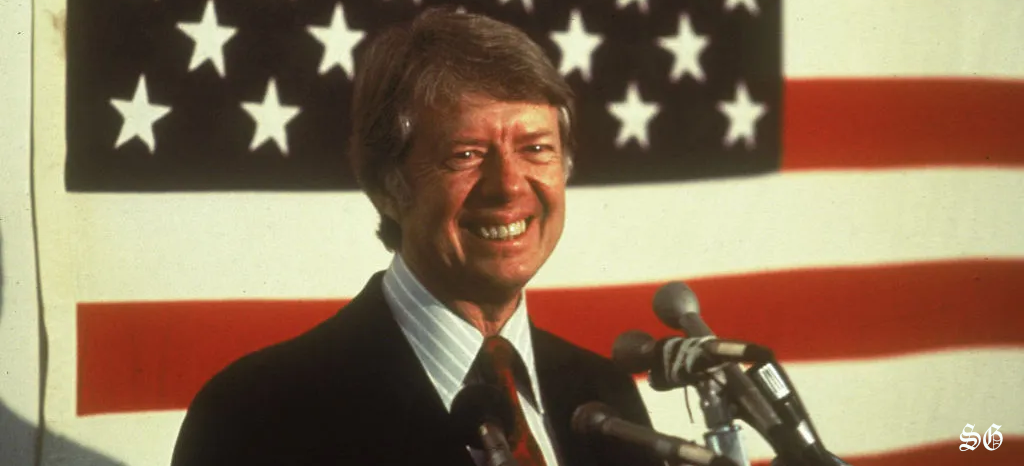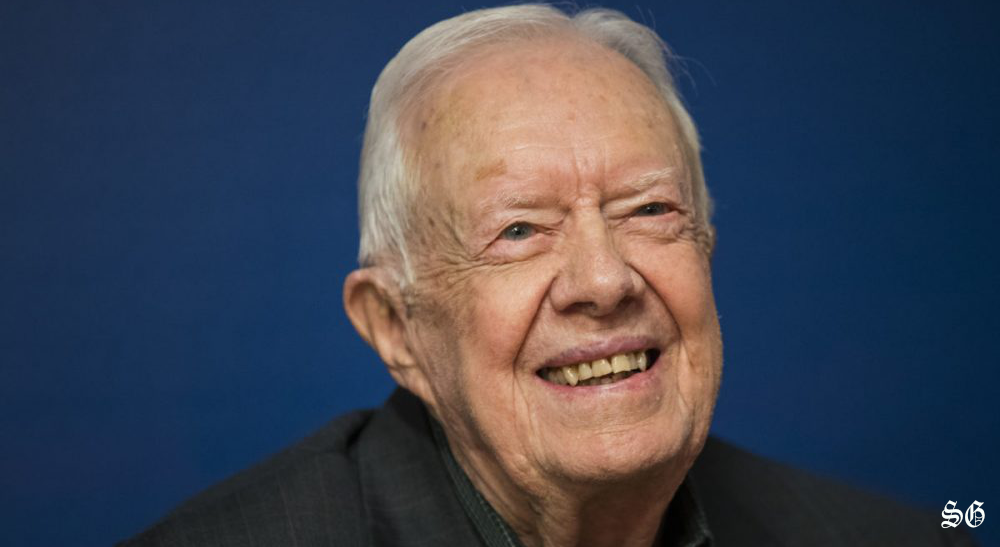Table of Contents

Jimmy Carter: From Humble Beginnings to Global Humanitarian
James Earl Carter Jr. (1924–2024)
Early Life and Career
Jimmy Carter was born on October 1, 1924, in Plains, Georgia, to a farming family. He graduated from the U.S. Naval Academy in 1946 and served in the nuclear submarine program before returning to Georgia to manage his family’s peanut farm. In 1946, he married Rosalynn Smith, and the couple had three sons and a daughter.
Carter entered politics as a Georgia state legislator and later became governor of Georgia from 1971 to 1975.
Presidency (1977–1981)
Election and Inauguration
Carter, a Democrat and Washington outsider, won the 1976 presidential election against Republican incumbent Gerald Ford. His promise of honesty resonated in the post-Watergate era. At his 1977 inauguration, he walked rather than rode in a limousine to emphasize humility.
Achievements
- Camp David Accords (1978): Carter mediated a historic peace agreement between Egypt and Israel, culminating in the 1979 Egypt-Israel Peace Treaty.
- Panama Canal Treaty: He secured Senate approval to transfer control of the Panama Canal to Panama.
- Energy Policies: Carter emphasized energy conservation, creating the Department of Energy and advocating for reduced dependence on foreign oil.
- Diplomatic Efforts: Carter normalized relations with China and protested the Soviet invasion of Afghanistan by boycotting the 1980 Olympics in Moscow.
Challenges
- Economic Struggles: High inflation, soaring interest rates, and gas shortages plagued his administration.
- Iran Hostage Crisis: In 1979, Iranian revolutionaries seized 52 American hostages, holding them for 444 days. A failed rescue mission further undermined public confidence.
- 1980 Election Defeat: Ronald Reagan defeated Carter in a landslide, securing 44 states in the Electoral College.
Post-Presidency: Humanitarian Legacy
Global Humanitarian Work
After leaving office, Carter dedicated himself to humanitarian causes. His work through the Carter Center included:
- Election monitoring in over 100 countries.
- Efforts to eradicate diseases such as Guinea worm.
- Mediation in international conflicts.
In 2002, Carter was awarded the Nobel Peace Prize for his commitment to human rights and conflict resolution.
Diplomatic Missions
Carter made significant contributions through freelance diplomacy, including:
- Defusing nuclear tensions in North Korea in 1994.
- Advocating for peace in Haiti, Bosnia, and Ethiopia.
- Securing the release of Americans held captive abroad.
Publications
Carter authored over 25 books, ranging from memoirs to works on religion, human rights, and diplomacy.

Personal Life and Final Years
Carter remained deeply rooted in his Christian faith, teaching Sunday school for decades. He and Rosalynn celebrated a 77-year marriage before her passing in November 2023.
In February 2023, Carter entered hospice care at his home in Plains, Georgia. He passed away on December 30, 2024, at the age of 100.
Legacy
Carter’s presidency was marked by significant achievements and formidable challenges. However, his post-presidential life as a humanitarian set a standard for global citizenship and public service. His work for peace, democracy, and human dignity continues to inspire.